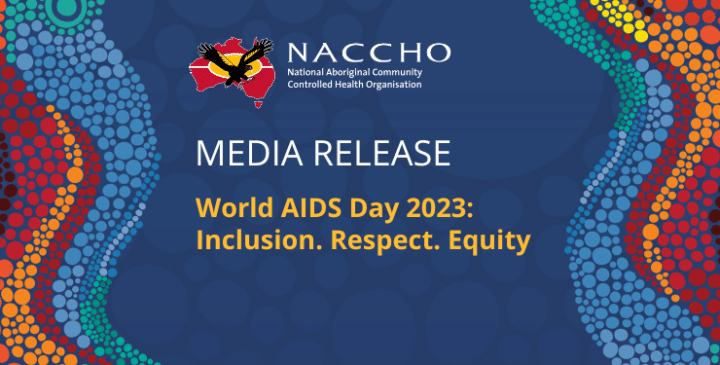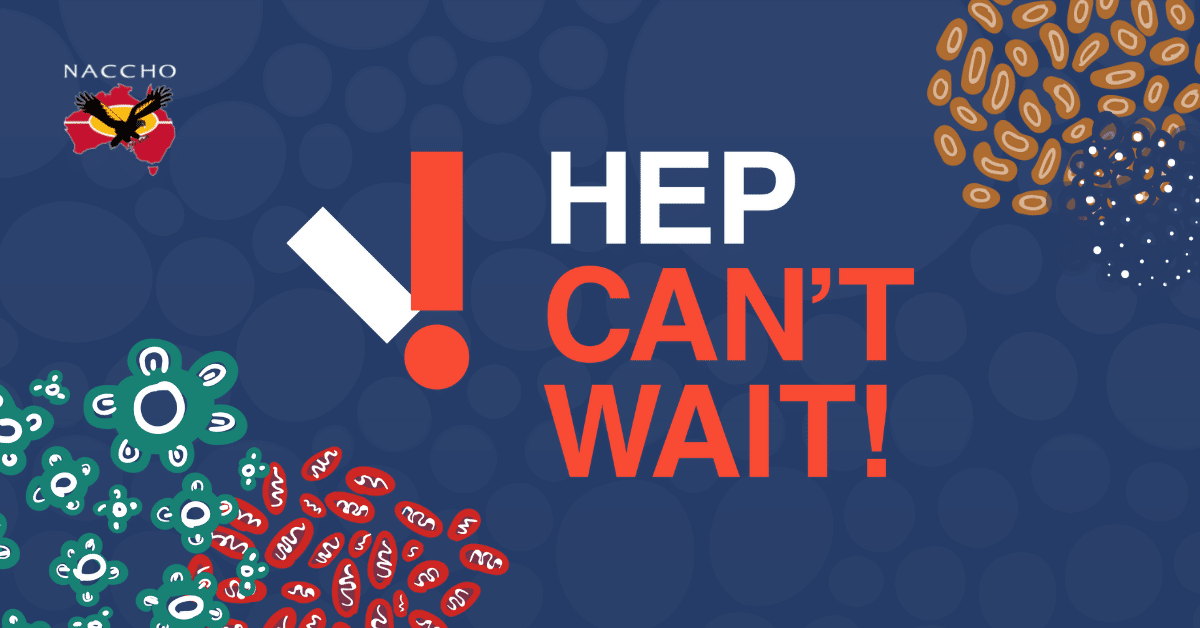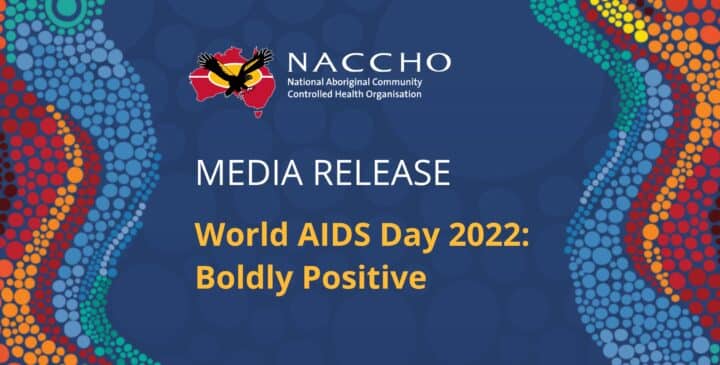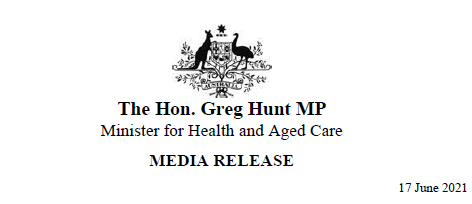

NACCHO message on World Hepatitis Day 2021: “Hep Can’t Wait”
This year’s World Hepatitis Day has seen NACCHO (National Aboriginal Community Controlled Health Organisation (NACCHO) and EC Australia (EC Australia: Eliminate Hepatitis C Australia Partnership) join forces to raise awareness of viral hepatitis and unite to demand action from decision-makers to eliminate Viral Hepatitis impacting communities.
COVID-19 has significantly impacted access to healthcare services across the country and Australians suffering from chronic diseases, such as Hepatitis B and C, have been greatly impacted. An estimated 200,000 fewer people received Hepatitis screening than the expected number in 2020 – a 20% decrease[1].
Globally, 325 million people are living with a hepatitis infection and every 30 seconds someone dies from a hepatitis related illness. With the world grappling with the global pandemic of COVID-19, we cannot wait to act on viral hepatitis given we have a safe and effective, low-cost vaccine for preventing Hepatitis B and simple and easy treatments that can cure Hepatitis C infections. This year’s theme “Hep Can’t Wait” stresses the importance for action to address the inequality of notifications and the inequity faced by the Aboriginal and Torres Strait Islander community.
NACCHO Chair Donnella Mills states, “Our communities have worked hard to prevent the spread of COVID-19 in regional areas, proving that when we work together, we can drive positive results for our people. However, the pandemic should not put the treatment of serious diseases at a standstill. The prevalence of viral hepatitis rates within Aboriginal and Torres Strait Islander communities is concerning.”
“I encourage our people to reach out to their local Aboriginal Community Controlled Health Organisations to get tested and seek treatment and help us share relevant information on how to control these diseases.”
Australia has made great strides towards eliminating hepatitis C as a public health threat resulting in a declining prevalence of hepatitis C amongst the general population. Sadly, the benefits of these efforts have not been equal. Recently released surveillance data[2] from the Kirby Institute reports a 15% increase in hepatitis C notifications amongst Aboriginal and Torres Strait Islander people.
Over this same period notifications decreased by 12% for other Australians. This gap is even more stark for newly acquired hepatitis C infections (hepatitis C diagnosis with evidence of acquisition in the 24 months prior to diagnosis) where Aboriginal and Torres Strait Islander people were 14 times more likely to have a newly acquired infection compared to other Australians.
Since 2016, all Australians have been able to receive subsidised direct-acting antivirals (DAAs) via the Pharmaceutical Benefits Scheme. DAAs can cure most people with hepatitis C in as little as 8-12 weeks. However, data from the Australian Needle and Syringe Program Survey shows that in 2017 Aboriginal and Torres Strait Islander people had a lower lifetime uptake of DAAs compared to other Australians (37% and 47% respectively). “We need to increase hepatitis C testing and ensure Aboriginal and Torres Strait Islander people living with chronic hepatitis C are linked to culturally appropriate care” Troy Combo, Aboriginal Program Manager EC Australia.
Aboriginal and Torres Strait Islander people have also reported that the stigma associated with a diagnosis of hepatitis C further compounds experiences of racially based stigma and discrimination.[3] Shame associated with their diagnosis can lead to alienation from family and community life and may make people reluctant to discuss or disclose their diagnosis.[4] These multiple layers of stigma may assist in explaining why Aboriginal and Torres Strait Islander people may be less likely to access treatment.
More must be done to prevent new infections and ensure all that Aboriginal and Torres Strait Islander people who have hepatitis C are treated. Addressing these inequities can’t wait. For each person who remains undiagnosed, their risk of liver damage and complications increases over time. Hepatitis C is curable and easy to treat.
In 2021 EC Australia will be convening a national reference group to support the development of a National health promotion campaign targeting Aboriginal and Torres Strait Islander communities. The campaign will raise awareness about and uptake of the new hepatitis C treatments and address ongoing stigma relating to hepatitis C and injecting drug use. The campaign will require further funding to ensure the message gets out to all Aboriginal communities.
To find out how your service or community can get involved please contact us on the below details:
Emily Phillips, Director of Communicable Diseases at NACCHO, bbvsti@naccho.orga.au
Troy Combo, Aboriginal Program Manager at EC Australia, t.combo@uq.edu.au

